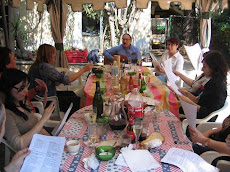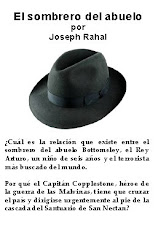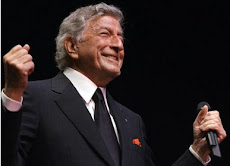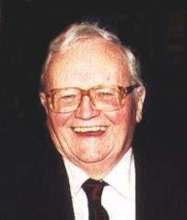This one's for you, Marta. I know it's one of your favourite songs, and it does bring back cherished memories of those days, long gone by, when we all thought we could change the world. Thursday night's End-of-Course concert was, in a sense, a tribute to all those young, and not so young, students, workers, thinkers and idealists, who joined forces in 1968 in what has probably been the largest ever world-wide demonstration in favour of peace, equal rights, social dignity and an end to war, exploitation and the rest of this world's injustices. We're so much older now, but.....are we really any wiser! I really think we could do with a repetition.
As far as "USED TO" is concerned, and for the benefit of my Students of English, I thought the song was a good way of illustrating that "used to" , followed by an infinitive is equivalent to "usually" in the past. Let's look at a couple of examples:
Present - I usually start work at 8 am. (A habit in the present)
Past- I used to start school at 9.15 am when I was young. (A habit in the past)
In the song, Mary Hopkin sings about the place "where we used to raise a glass or two".
What a lot of students don't know, however, is that we can use "Would" with the same result:
Present - My grandparents usually visit us every Saturday evening. (A habit in the present)
Past - My grandparents would visit us every Saturday evening. (A habit in the past)
In the song, Mary Hopkin sings "We'd sing and dance....We'd live the life.... We'd fight and never lose..."
Here's the full video from youtube. (I wonder how many of you knew it's based on an original Russian folk song!). Lyrics on the left and in the video itself. Enjoy.
28/06/2008
23/06/2008
MORE RIDDLES & THE FEAST OF SANT JOAN
It turned out that "INVINCIBILITY" was not the word Mike had been thinking of. HIS word was "INVISIBILITY". So in fact there are at least TWO words that contain 5 "i's" and a "y", and no other vowels. Can you think of any more?
SANT JOAN - This is, without a shadow of doubt, my favourite Spanish festivity. The shortest night of the year becomes, in fact, the longest one, since very few people actually go to bed before the dawn. Indeed, it's quite common to see thousands of party-goers in Barcelona congregating on the beaches, after celebrating all night - with fireworks, cava and the traditional "Coca de Sant Joan" - to watch the sun rising on the horizon over the mediterranean sea. ABSOLUTELY MAGNIFICENT
SANT JOAN - This is, without a shadow of doubt, my favourite Spanish festivity. The shortest night of the year becomes, in fact, the longest one, since very few people actually go to bed before the dawn. Indeed, it's quite common to see thousands of party-goers in Barcelona congregating on the beaches, after celebrating all night - with fireworks, cava and the traditional "Coca de Sant Joan" - to watch the sun rising on the horizon over the mediterranean sea. ABSOLUTELY MAGNIFICENT
11/06/2008
ANSWERS
Ok, you guys and gals, you've had more than enough time to find the answers to the riddles; so, here we go:
1. Five eyes and a why - INVINCIBILITY (5 "I"'s AND A "Y")
2. Five vowels joined together in one word - This is what "askoxford.com" says
"We know of only one word in anything like standard use which has five consecutive vowels, and that is Rousseauian 'pertaining to Rousseau or his views on religion, politics, education, etc.' Apart from this, and the large vowel clusters in queueing, there are only the Greek-derived words of the pharmacopoeia type.
3. What did the big chimney say to the little chimney? - "You smoke too much!"
*******************
While we're on the subject, here are some more pearls of the English language:
- OOLOOPOOLOO - A palindrome (A word that reads the same in both directions). This one refers to a dialect spoken in Australia. I'm not sure you can call it "English", though!
- EDUCATION - A word containing all five vowels.
- ABSTEMIOUS - A word containing all five vowels IN THE RIGHT ORDER!
For more gems like these, check out this link:
http://www.askoxford.com/asktheexperts/faq/aboutwords/fivevowels?view=uk
http://www.askoxford.com/asktheexperts/faq/aboutwords/fivevowels?view=uk
ALSO, CHECK OUT "RIDDLES" - left-hand column - and ENJOY.
04/06/2008
5 EYES and a WHY - answer
Well, for those who couldn't find the answer, perhaps this will help:
i--i--i-i-i-y (5 "i"s and a "y"!).
Am I right, Mike?
And now, an English word containing 5 vowels, all joined together! This one's also from Mike. Thanks Mike.
i--i--i-i-i-y (5 "i"s and a "y"!).
Am I right, Mike?
And now, an English word containing 5 vowels, all joined together! This one's also from Mike. Thanks Mike.
Subscribe to:
Posts (Atom)





















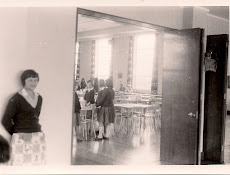


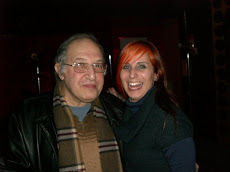






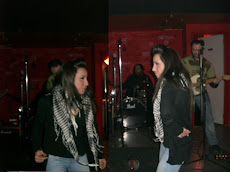










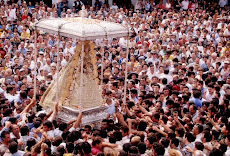%5B1%5D.jpg)






































